Gardening in Morningside: A Comprehensive Guide to Cultivating Your Green Space
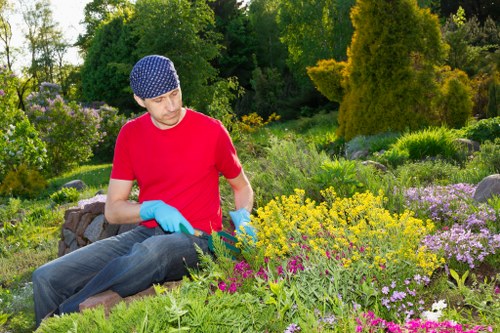
Welcome to the vibrant world of gardening in Morningside! Whether you're a seasoned gardener or just starting, Morningside offers a unique climate and community that make it an ideal place to cultivate your green space. In this article, we'll explore the best practices, tips, and resources to help you create a beautiful and sustainable garden right in your neighborhood.
Gardening in Morningside isn't just about planting flowers and vegetables; it's a way to enhance your home's aesthetic, promote environmental sustainability, and provide a peaceful retreat for you and your family.
From understanding the local climate to selecting the right plants, our guide covers everything you need to start your gardening journey in this charming area.
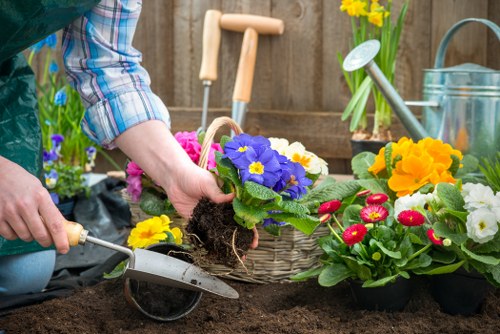
Morningside enjoys a temperate climate with distinct seasons, which plays a crucial role in gardening success. Here’s what you need to know:
- Temperature: Mild winters and warm summers provide a favorable environment for a wide variety of plants.
- Rainfall: Adequate rainfall throughout the year, with occasional dry spells, requires gardeners to implement effective watering strategies.
- Sunlight: Morningside receives ample sunlight, ideal for sun-loving plants, but certain areas may have partial shade.
Understanding these climatic factors will help you choose the right plants and plan your garden layout effectively.
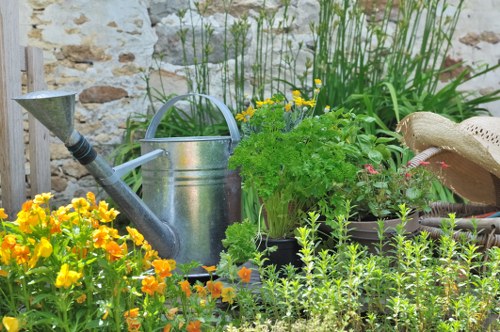
Selecting plants that thrive in Morningside's climate is essential for a successful garden. Here are some top choices:
- Perennials: Lavender, echinacea, and daylilies are excellent choices for their hardiness and minimal maintenance.
- Vegetables: Tomatoes, peppers, and leafy greens like spinach and kale grow well in this region.
- Flowers: Roses, daisies, and marigolds can add vibrant colors to your garden.
Incorporate a mix of these plants to ensure year-round beauty and productivity.
Seasonal Planting Tips
Planting at the right time of year enhances growth and yield. Here are some guidelines:
- Spring: Perfect for planting vegetables and annual flowers.
- Summer: Focus on maintenance and harvesting your crops.
- Fall: Ideal for planting perennials and preparing your garden for winter.
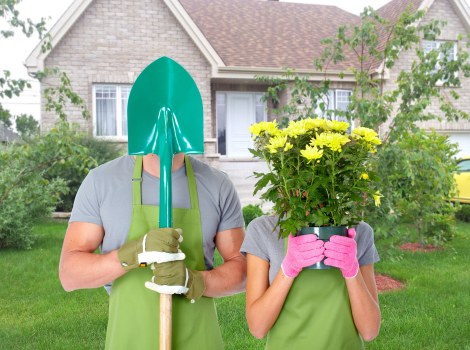
Healthy soil is the foundation of a thriving garden. Follow these steps to prepare and maintain your garden soil:
- Testing: Conduct a soil test to determine pH levels and nutrient content.
- Amending: Add compost or organic matter to improve soil structure and fertility.
- Mulching: Apply mulch to retain moisture, suppress weeds, and regulate soil temperature.
- Rotation: Practice crop rotation to prevent soil depletion and reduce pest buildup.
Regular soil maintenance ensures your plants receive the nutrients they need to grow strong and healthy.
Organic Gardening Practices
Embrace sustainable gardening by using organic methods. This includes:
- Natural Fertilizers: Use compost, manure, and other organic fertilizers instead of chemical alternatives.
- Pest Control: Implement biological controls like beneficial insects and natural repellents.
- Water Conservation: Utilize drip irrigation and rain barrels to minimize water usage.
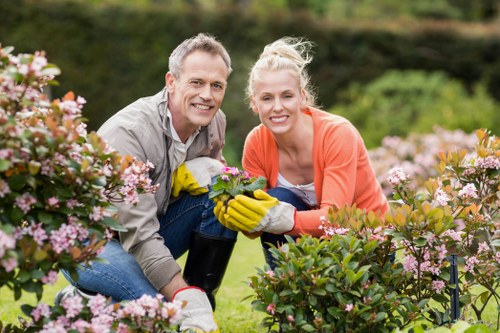
A well-designed garden not only looks appealing but also functions efficiently. Consider the following elements when designing your garden:
- Layout: Plan pathways, garden beds, and seating areas for easy navigation and enjoyment.
- Plant Arrangement: Group plants with similar needs together and vary heights and colors for visual interest.
- Focal Points: Incorporate features like fountains, statues, or a pergola to serve as centerpieces.
Thoughtful design enhances the overall experience of your garden, making it a place you'll love to spend time in.
Vertical Gardening Options
If space is limited, consider vertical gardening techniques. These methods maximize space and add a unique dimension to your garden:
- Trellises: Support climbing plants like vines and roses.
- Vertical Planters: Use wall-mounted planters for herbs and small flowers.
- Green Walls: Install living walls to create a lush, green backdrop.
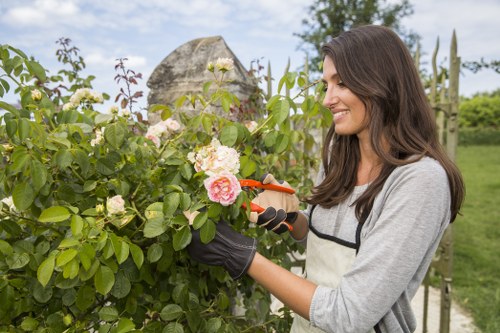
Consistent maintenance is key to a healthy garden. Here are essential tasks for each season:
- Spring: Plant new flowers and vegetables, prune overgrown shrubs, and prepare garden beds.
- Summer: Water regularly, mulch to retain moisture, and manage pests.
- Fall: Clean up debris, plant perennials, and protect plants from frost.
- Winter: Prune trees, plan for the next growing season, and protect sensitive plants.
Regular upkeep ensures your garden remains vibrant and productive throughout the year.
Tools and Equipment
Having the right tools makes gardening easier and more enjoyable:
- Basic Tools: Shovels, rakes, hoes, and pruners are essential for daily tasks.
- Watering Equipment: Invest in a good hose, sprinkler system, or drip irrigation setup.
- Protective Gear: Wear gloves, hats, and knee pads to stay comfortable while working.
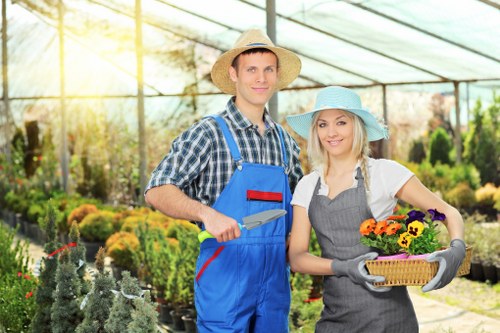
Sustainability is at the heart of modern gardening. Implementing eco-friendly practices not only benefits the environment but also enhances the health of your garden:
- Composting: Recycle kitchen scraps and garden waste to create nutrient-rich compost.
- Rainwater Harvesting: Collect rainwater to use for watering your plants.
- Native Plants: Choose native species that require less water and are more resistant to local pests.
- Biodiversity: Promote a diverse ecosystem by planting a variety of species to support pollinators and beneficial insects.
Adopting sustainable practices ensures your garden thrives while minimizing its ecological footprint.
Energy-Efficient Garden Lighting
Illuminate your garden sustainably with energy-efficient lighting options:
- Solar Lights: Harness the power of the sun to light pathways and highlight features without increasing your energy bill.
- LED Fixtures: Use long-lasting and low-energy LEDs for ambient lighting.
- Motion Sensors: Install motion-activated lights for added security and convenience.
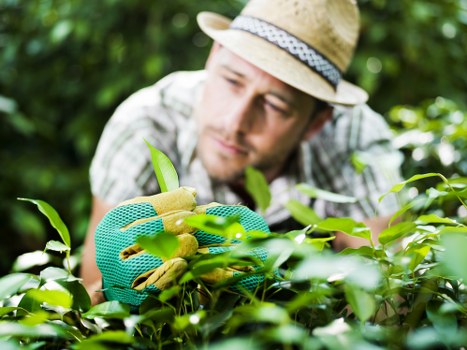
Accessing local resources can significantly enhance your gardening experience in Morningside:
- Nurseries: Visit local nurseries to find region-specific plants and expert advice.
- Community Gardens: Join a community garden to connect with fellow gardeners and share knowledge.
- Workshops and Classes: Attend gardening workshops to learn new techniques and stay updated on best practices.
- Gardening Clubs: Become a member of a local gardening club to network and participate in events.
Utilizing these resources can provide you with the support and information needed to maintain a thriving garden.
Professional Gardening Services
If you need assistance, consider hiring professional gardening services. They offer expertise in areas such as:
- Landscape Design: Create a customized garden layout that suits your preferences and space.
- Maintenance: Regular upkeep to ensure your garden remains healthy and beautiful.
- Pest Control: Implement effective strategies to manage and prevent pest infestations.
Professional services can help you achieve your gardening goals with ease and efficiency.
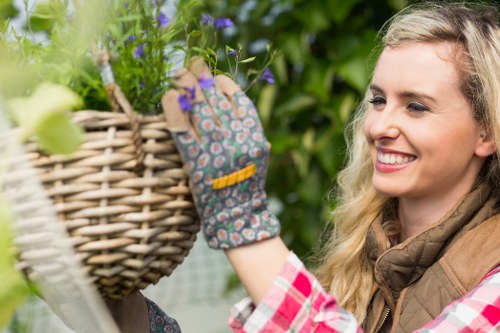
Morningside is surrounded by several neighborhoods and communities, each offering unique gardening opportunities and services. Here are the top nearby areas:
- Edgware: Just 2 miles away, Edgware boasts numerous nurseries and community gardens.
- Golders Green: Located 3 miles from Morningside, it offers a variety of gardening clubs and workshops.
- Brent Cross: 4 miles away, Brent Cross is known for its expansive green spaces and botanical gardens.
- West Finchley: At 5 miles distance, West Finchley has excellent soil conditions and local gardening resources.
- Finchley Central: 6 miles from Morningside, it features multiple urban gardening initiatives.
- Mill Hill: Situated 7 miles away, Mill Hill offers beautiful parks and recreational gardening areas.
- Queensbury: 8 miles from Morningside, Queensbury is home to several organic farms and sustainable gardening projects.
- Cricklewood: Located 9 miles away, Cricklewood provides access to diverse plant varieties and expert gardening advice.
- Kensal Green: 10 miles from Morningside, Kensal Green has charming community gardens and local gardening events.
- Stoke Newington: 11 miles away, Stoke Newington is renowned for its vibrant gardening scene and innovative green solutions.
Each of these nearby areas complements Morningside's gardening landscape, providing additional resources and inspiration for your gardening endeavors.
Exploring Community Initiatives
Engage with community initiatives in these areas to enhance your gardening experience:
- Seed Swaps: Participate in seed exchange events to diversify your plant collection.
- Workshops: Attend educational sessions on topics like composting, pest management, and sustainable practices.
- Garden Tours: Explore different garden styles and gain inspiration from local gardeners.
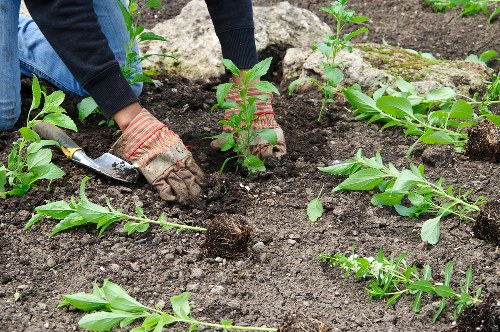
Every gardener faces challenges. Here are solutions to some common issues:
- Pests: Use natural repellents and introduce beneficial insects to control pest populations.
- Weeds: Regular weeding and mulching can prevent weeds from taking over your garden.
- Diseases: Ensure proper spacing and air circulation to minimize fungal and bacterial diseases.
- Watering Problems: Implement a consistent watering schedule and adjust based on seasonal changes.
Proactive measures and early intervention can save your garden from significant damage.
Soil Health Management
Maintaining soil health is crucial for plant vitality. Here are some tips:
- Regular Testing: Monitor soil pH and nutrient levels to make informed amendments.
- Cover Crops: Plant cover crops in off-seasons to prevent soil erosion and add organic matter.
- Rotation: Rotate crops annually to avoid nutrient depletion and reduce disease risk.
Embrace modern gardening techniques to maximize your garden's potential:
- Hydroponics: Grow plants without soil, ideal for limited spaces and controlled environments.
- Permaculture: Design your garden to mimic natural ecosystems, promoting sustainability and resilience.
- Vertical Gardening: Utilize vertical space to grow more plants in smaller areas.
- Companion Planting: Pair plants that benefit each other, enhancing growth and deterring pests.
Integrating these techniques can lead to a more productive and efficient garden.
Smart Gardening Tools
Upgrade your gardening toolkit with smart devices:
- Soil Moisture Sensors: Monitor soil moisture levels to optimize watering schedules.
- Automated Irrigation Systems: Ensure consistent watering with minimal effort.
- Garden Apps: Use applications for tracking plant growth, scheduling tasks, and accessing gardening tips.
Aesthetics play a significant role in creating a beautiful garden. Consider these elements:
- Color Schemes: Choose a harmonious color palette for your plants to create visual appeal.
- Textures and Shapes: Mix different plant textures and shapes for a dynamic landscape.
- Garden Art: Incorporate sculptures, decorative stones, and other art pieces to add personality.
- Water Features: Install ponds, fountains, or waterfalls for a soothing ambiance.
Thoughtful aesthetic choices can transform your garden into a stunning outdoor sanctuary.
Seasonal Decorations
Add seasonal decorations to keep your garden lively throughout the year:
- Spring: Plant tulips and daffodils, and add pastel-colored decorations.
- Summer: Use vibrant flowers and decorative lanterns.
- Fall: Incorporate pumpkins, gourds, and warm-toned foliage.
- Winter: Decorate with evergreen branches, fairy lights, and festive ornaments.
Gardening in Morningside is more than just a hobby; it's a way to connect with your community:
- Community Events: Participate in local garden tours, plant sales, and gardening festivals.
- Sharing Knowledge: Exchange tips and advice with fellow gardeners through clubs and online forums.
- Volunteer Opportunities: Contribute to community gardens and local beautification projects.
- Educational Programs: Engage in programs that educate children and adults about sustainable gardening.
These social interactions enrich your gardening experience and foster a sense of belonging.
Building Relationships
Establish strong relationships within the gardening community:
- Networking: Connect with local experts and enthusiasts for support and inspiration.
- Collaborative Projects: Work together on large-scale gardening initiatives or beautification projects.
- Mentorship: Seek mentorship from experienced gardeners or offer guidance to newcomers.
Gardening offers numerous benefits for your physical and mental health:
- Physical Activity: Gardening involves various physical tasks that improve strength, flexibility, and endurance.
- Mental Health: Spending time in nature reduces stress, anxiety, and depression.
- Nutrition: Growing your own vegetables and herbs promotes healthy eating habits.
- Social Interaction: Engaging with the gardening community enhances your social life and provides support.
Embracing gardening can lead to a healthier and more fulfilling lifestyle.
Therapeutic Gardening
Therapeutic gardening is a practice that uses gardening activities to promote healing and well-being:
- Stress Relief: Gardening provides a calming environment to unwind and de-stress.
- Cognitive Benefits: Planning and maintaining a garden improve memory and problem-solving skills.
- Physical Rehabilitation: Gardening tasks can aid in physical rehabilitation by enhancing motor skills and coordination.
Gardening in Morningside offers endless possibilities for creating a beautiful, sustainable, and enriching outdoor space. By understanding the local climate, selecting the right plants, and utilizing available resources, you can cultivate a garden that thrives and brings joy year-round.
Whether you're looking to grow your own vegetables, enhance your home's aesthetic, or connect with a vibrant community, gardening in Morningside is a rewarding endeavor.
Ready to transform your garden? Contact us today to get started on your gardening journey in Morningside!
